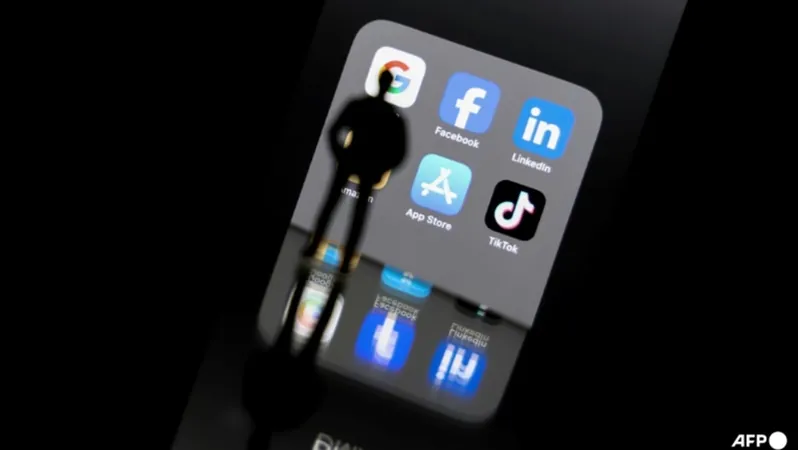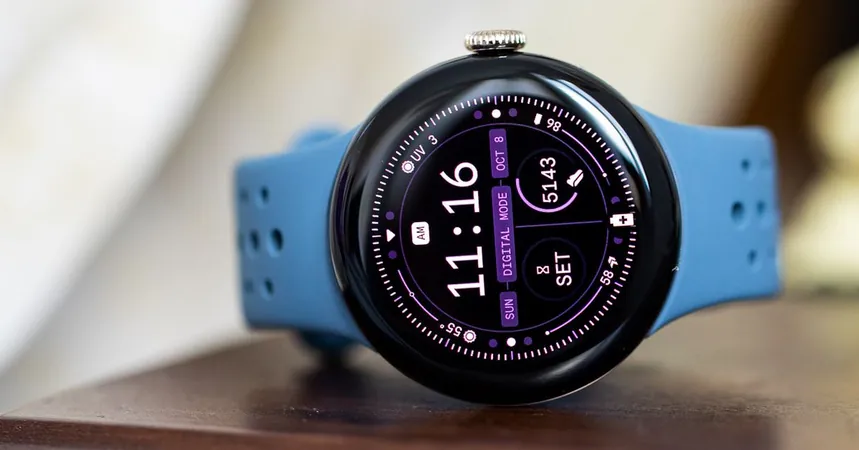
Unmasking the Alarming Rise of Image-Based Sexual Abuse in Singapore: A Call for Action
2024-10-13
Author: John Tan
SINGAPORE:
The trauma of image-based sexual abuse (IBSA) is haunting many victims across Singapore, revealing a disturbing trend that accelerates with the advancement of technology. One such victim, Michelle*, shares her harrowing experience of having a manipulated image of herself circulated online when she was just 14 years old. “Every day felt like hell,” she recalls, highlighting how the fear of judgment from peers and family engulfed her life. Unfortunately, Michelle's story is not an isolated incident; it reflects a growing crisis affecting countless individuals in the nation.
In a recent survey conducted by the Singapore government, a marked increase in harmful content, particularly cyberbullying and sexual content, was reported on social media platforms. This alarming trend draws attention to the insidious nature of IBSA, which involves the creation, acquisition, extortion, and distribution of sexual images or videos without consent. This abuse manifests in various forms: from upskirt videos and deepfake porn to sextortion.
Who's Most Affected?
Women and children are disproportionately targeted by IBSA. Associate Professor Razwana Begum from the Singapore University of Social Sciences noted that societal perceptions often objectify women, making them more vulnerable. Young girls, often easy prey for digital predators, face some of the most severe consequences. Dr. Chew Han Ei, an adjunct senior research fellow at the Institute of Policy Studies, warns that criminals exploit emerging technologies to exploit these vulnerable demographics.
Interestingly, men are also targets of IBSA but often face it through blackmail schemes where criminals impersonate women to coerce them into compromising situations. The statistics speak volumes: between 2021 and 2023, Singapore saw an average of 340 IBSA-related cases reported annually. Alarmingly, voyeurism offenses rose by 12% in just the first half of 2024.
The Emotional Toll
The ramifications of IBSA extend far beyond mere statistics. Victims frequently experience intense emotional distress, graphic anxiety, and, tragically, suicidal thoughts. “They fear for their own safety when interacting online,” explains Dr. Chew, emphasizing that the psychological scars can often be deeper than the financial losses from scams.
Michelle, now 21, continues to grapple with her past trauma, battling post-traumatic stress disorder as she strives to reclaim her life and sanity. Despite knowing she’s not to blame, she feels guilt for merely existing in a society that often blames the victim.
The Role of Technology
The rise of generative artificial intelligence has made matters worse, particularly for women. A staggering 95% of AI-generated deepfake porn targets female victims, illustrating how technology can be wielded as a weapon against the innocent. Encrypted platforms, such as Telegram, further complicate the situation, enabling the rampant distribution of IBSA-related content while making it challenging for authorities to track these crimes.
Break the Silence
Despite the growing prevalence of IBSA, public inaction remains a troubling trend. The April government survey revealed that 60% of users who encountered harmful content chose not to report it, often believing their actions wouldn't make a difference. This continuing silence perpetuates a dangerous normalization of IBSA, prompting experts to call for a societal shift in how we perceive and respond to these abuses.
Support for Victims
Victims urgently need comprehensive support systems, including safe spaces to discuss their experiences without judgment. Experts advocate for a centralized support hub where survivors can access counseling, legal advice, and assistance in reporting incidents. Immediate access to help is critical in combatting the distressing implications of these cybercrimes.
Legal Frameworks and Challenges
Singapore has enacted several laws to combat IBSA, including the Online Safety Code and the Online Criminal Harms Act, which aim to hold social media platforms accountable for harmful content. However, challenges persist in navigating the complexities of consent, especially in intimate relationships. Experts urge that the assumption should be that any intimate content shared online is non-consensual until proven otherwise.
In response to the escalating crisis, a new government agency has been announced to expedite actions against online harms, allowing victims to seek quick resolutions without enduring lengthy court processes.
Finding Hope in Darkness
Michelle’s advice to others who find themselves in similar situations is simple yet profound: “What we can do is protect ourselves and seek help.” Her experience underscores a critical message—survivors of IBSA should not feel isolated and must know they’re not alone in their fight against this pervasive issue.
Where to Get Help
For those struggling with the aftermath of IBSA or facing similar challenges, various resources are available: - **Police Emergency**: Call 999 or SMS 70999 - **National Anti-Violence and Sexual Harassment Helpline**: 1800-777-0000 - **Samaritans of Singapore**: 1767 - **Institute of Mental Health**: 6389 2222
It’s time for society to stand up and say enough is enough—together, we can combat the darkness of image-based sexual abuse and foster a safer online environment for everyone.



 Brasil (PT)
Brasil (PT)
 Canada (EN)
Canada (EN)
 Chile (ES)
Chile (ES)
 España (ES)
España (ES)
 France (FR)
France (FR)
 Hong Kong (EN)
Hong Kong (EN)
 Italia (IT)
Italia (IT)
 日本 (JA)
日本 (JA)
 Magyarország (HU)
Magyarország (HU)
 Norge (NO)
Norge (NO)
 Polska (PL)
Polska (PL)
 Schweiz (DE)
Schweiz (DE)
 Singapore (EN)
Singapore (EN)
 Sverige (SV)
Sverige (SV)
 Suomi (FI)
Suomi (FI)
 Türkiye (TR)
Türkiye (TR)